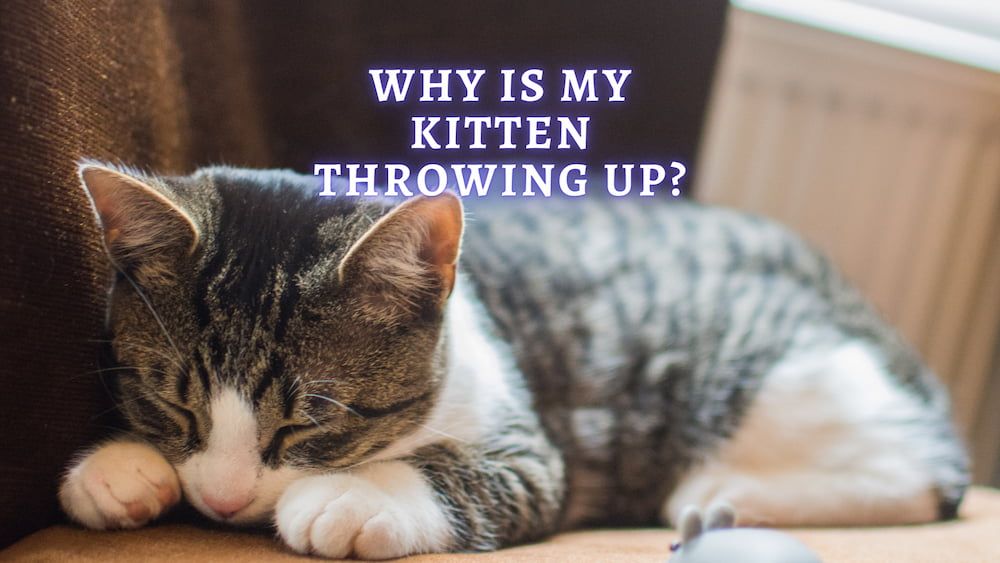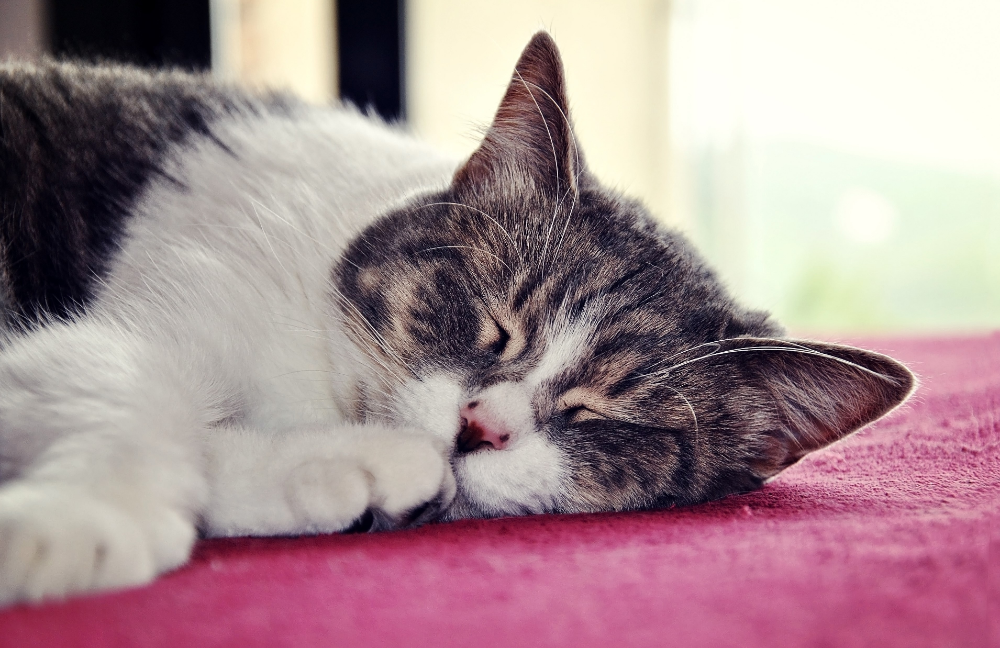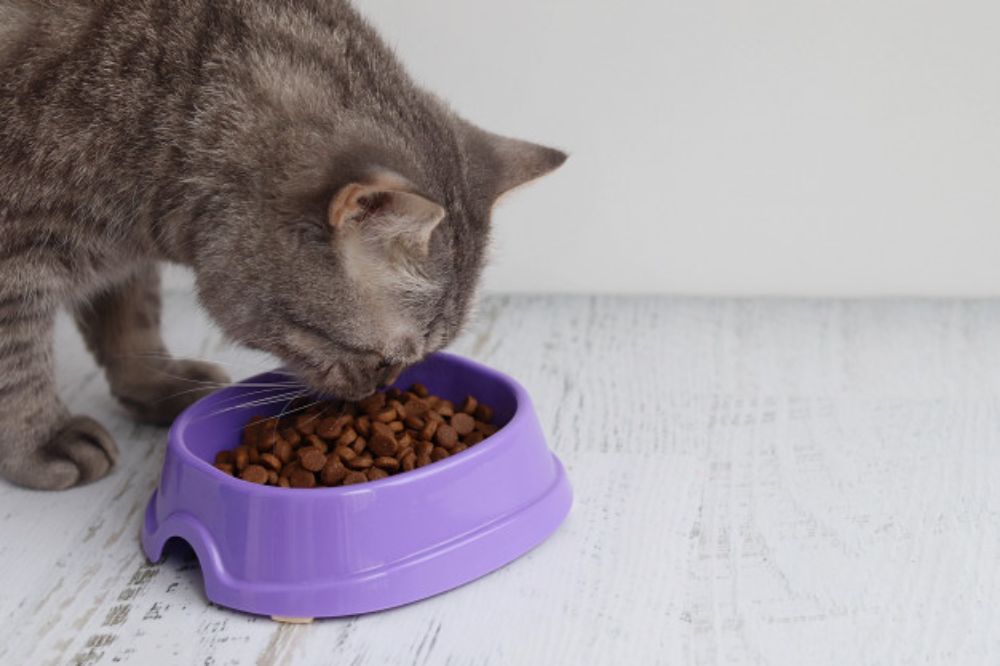Those of us who have had cats before know nothing gets you out of your cozy, warm bed faster than the sound of that mournful mew that precedes a loud gag, then retching and your cat throwing up a kitten-sized hairball onto your most delicate upholstery. Cat’s are frequent vomiters, but it’s important to know when to just reach for the cleaning supplies or when to visit your veterinarian.


Photo by Lodewijk Hertog on Unsplash
Is it normal for Kittens to throw up?
The short answer to this is yes. Cat’s can vomit due to hairballs, especially if they are long-haired and fastidious about grooming habits. Stepping in the occasional small pile of vomit can be par for owning a cat, but if your kitten is vomiting at regular or frequent intervals, there may be cause for concern.
Causes of Vomiting in Kittens
There are so many causes for vomiting in felines of all ages, but some of the causes are listed here for you:
1. Hairballs
These are probably the most common cause of puking in cats of all ages but shouldn’t be painful and should only occur occasionally without causing your kitten any stress. Rarely, hairballs can cause a blockage within a kitten’s intestinal tract, so keeping a close eye on how often your kitty brings up a hairball and their comfort can help you decide when some intervention may be required.
2. Foreign body
Kittens love to practice their hunting and attack skills, often having a nibble during the attack on their unsuspecting toys. Keep an eye on toys to monitor for wear and tear or any missing pieces which could cause your kitten to throw up possibly due to the broken piece getting stuck in your kitty’s stomach or small intestine. These can cause a lot of discomfort for your kitten and they may be dull. Some cases even need surgery to remove the offending object.
3. Dietary Indiscretion
House plants are not immune to kitty attacks and some can cause nasty tummy upsets or even worse complications. Most of these plants will cause your kitten to throw up after eating but to avoid any problems or longer-term complications, try to keep house plants and flower bouquets out of your kitten’s reach, especially those that are toxic such as lilies, daffodils, and tulips. The full list you can read at what food cat can eat.
4. Parasites
Internal parasitic worms are an uncommon culprit of kitty’s vomiting but can be a cause of throwing-up in kittens that haven’t received regular anti-parasitic treatments. You may even find worms in the pool of “sick” in severe cases and you should take your kitten to your veterinarian for examination and treatment. Disgusting as it may seem, photos of the vomit contents may help your vet make a diagnosis regarding the type of parasite involved and thus the treatment required.
5. Infection
Gastrointestinal infections are common in young kittens and while most are short-lived, some may need treatment to prevent dehydration if your kitten is dull or vomiting excessively. These infections could be caused by viral or bacterial infections, but only bacterial infections can be treated with antibiotic medications; supportive care with fluids and anti-inflammatory medications is very important in viral infections. Some of the viral causes of vomiting can be contagious so you may need to isolate and disinfect your kitten’s toys, litter tray, and food bowls.
6. Organ disease
These tend to be seen in elder cats rather than kittens. However, it can still occur. These diseases can cause substances to build up within the bloodstream, making your kitten feel poorly and nauseous. Kidney disease can cause vomiting of thick, yellow bile and is usually accompanied by dullness and changes to your kitten’s typical behavior.
7. Food Allergy
Some felines suffer from food sensitivities which can present as gastrointestinal distress, including diarrhea and vomiting. These kitties often have itchy or flaky skin which can lead to over-grooming and hair loss. Diagnosis of a food allergy can take some time and many tests. If you suspect that your kitten has a food allergy, contact your veterinarian for some advice as rapid or frequent food changes can cause your kitten’s tummy to be even more upset.
READ MORE: Can a Cat have Allergies
8. Travel sickness
Cats don’t tend to travel in cars as much as their canine counterparts and many suffer from car sickness (or motion sickness), which may range from nausea and drooling to actively barfing while traveling. If your kitten suffers from travel sickness, you may be able to give anti-nausea medication from your veterinarian to help in these situations.
Other common causes of vomiting include:
- too much food eaten too quickly;
- too much exercise directly after eating (most common in kittens);
- reaction to medication;
- kitten ate something that is toxic to them, like lilies;
READ MORE: When Kittens Lose their Teeth
What should I do if my Kitten Vomits?
If your cat is “chasing ghosts” through the house and then stops to vomit before resuming their activities, continues to eat, and seems happy then there’s probably not much to worry about unless this persists or occurs very frequently. If your kitten is dull, lethargic or doesn’t want to eat and also has thrown up, then a trip to your veterinarian is prudent.


Photo by @expressiovisual from Freepik
Next up, analyze the offending pool of puke! The color and vomit contents can help determine the cause of your kitty’s problem; hairballs are usually accompanied by foamy, yellow-tinged fluid while blood or thick yellow fluid would warrant a visit to your veterinarian.
Difference Between Cat Vomit & Regurgitation
The main difference between vomiting and regurgitation is that vomiting is an “active”, that is, “sharp”, “occurring with force, with effort” release of vomit. Regurgitation is a “passive” process that occurs without effort and often without any previous symptoms. If in vomiting most often there are components of undigested food, then this is rare when regurgitation occurs. With frequent regurgitation, it is important to show the animal to the doctor. Sometimes regurgitation can indicate a violation in the esophagus – for example, its pathological expansion (megaesophagy), narrowing (stenosis), inflammation (esophagitis) or a foreign body stuck in it.
Vomiting causes a strong contraction of the abdominal wall. Vomit usually contains stomach acid (which can be recognized by its sour smell). Before vomiting, the cat usually has nausea, as evidenced by, for example, choking or profuse salivation. The cat swallows saliva, licks its lips, makes characteristic sounds.
What causes Regurgitation?
Cats vomit for a variety of reasons. To understand why this happens to your pet, watch how he behaves during and after eating. Reasons for spitting up:
- Abrupt change in diet
- The food is too cold
- Portion too big
- The cat drinks water immediately after eating
- Intolerance to certain types of meat
- Too large pieces of meat
- Stress
- Wool in the stomach
- Long breaks between meals
Chronic and acute cat vomits
There are two types of cat vomiting – acute and chronic.
If the nature of vomiting is acute, that is, the cat vomits after eating (lasts up to 2 days). In this case, the composition of the vomit: yellow foam, the remains of undigested cat food. In addition, there may be concomitant symptoms: impaired stool, fever.
If the cat vomits before eating, then the vomiting is chronic (lasting more than 2 weeks). In chronic vomiting case, the composition of the cat’s vomit is white or yellow foam. There are usually no associated symptoms.
When Vomiting in Kitten Cause for Concern?
It can be difficult to determine if your kitten needs a trip to your veterinarian. A good rule of thumb is that if you’re in doubt, then call your veterinarian who can advise you on the best course of action.
In the meantime, some things that can help you to decide when your kitten needs a veterinarian are covered here:
1. Demeanor
Happy, bright, and playful kittens that have thrown-up and continued to act normally are unlikely to require a visit to your veterinary clinic. Conversely, if your kitten becomes dull/quiet or lethargic, then this indicates that your kitten is feeling rather poorly and may need some medication to help them feel better. Loss of appetite, hiding behaviors, or if your kitten is drooling or lip-smacking a lot can also be indicators that they feel nauseous and may need some anti-nausea medications. If there’s a possibility that your kitten has eaten something toxic or a piece of a toy or plastic etc then anti-nausea medicine shouldn’t be given and your veterinarian may recommend some further testing before administering any medications.
2. Frequency
Regular and frequent vomiting episodes with no other behavior changes should be investigated to ensure your kitten isn’t suffering from intestinal parasites or organ diseases, though this doesn’t have to be an emergency appointment can be made in the coming days when noticed. You should immediately take your kitten to your veterinarian if your kitten has vomited a number of times in a short space of time (hours) as your kitten may have an intestinal obstruction or gastrointestinal infection.
3. Content
Streaks of fresh blood or vomit that contains dark granules that look similar to coffee granules (digested blood) are a cause for concern and your kitten needs to see a veterinary surgeon rapidly. If your kitten’s throw-up contains pieces of a toy or plant or is anything other than a foamy, yellow-tinged color, you should seek veterinary attention.
4. Kitten age and size
Young and small-sized kittens can rapidly become dehydrated and hypoglycemic (low blood sugar levels) if they are throwing up and not eating or drinking. These kittens need veterinary attention as a matter of urgency to prevent them from becoming very weak.
Why is my Kitten Vomiting after Eating?


Photo by @nadiiaaks from Freepik
If your kitten brings up undigested food, it may be due to gulping down their breakfast too fast, causing them to upchuck soon afterward. This is called regurgitation and is very common with many cats and nothing to worry about. If your kitten regurgitates, try feeding small, frequent meals to encourage slower eating or even try some special food dispenser toys or bowls that help prevent your kitten from bolting down their meals.
People also ask
Is it normal for a kitten to vomit?
Most often, vomiting after eating occurs for the following reasons. When the owner does not follow the rules of feeding and gives the pet too much food, the cat eats more than he needs and feels unwell. In cats, the physiology of the stomach has the shape of a hollow tube and its walls cannot stretch much. If a cat vomited once, her health should not cause alarm.
Should I be worried if my kitten throws up?
If the cat has overeaten or eats food too quickly: her stomach is full and the food returns to the esophagus. Reduce the portion by 2-3 times. Wait thirty minutes and repeat feeding with a small portion. Your cat may prefer to eat less, but more often. If the cat throws up once, but there are no other signs of illness, then there is no reason for alarm.
What causes a kitten to vomit?
Most often, vomiting after eating occurs for the following reasons. When the owner does not follow the rules of feeding and gives the pet too much food, the cat eats more than he needs and feels unwell. In cats, the physiology of the stomach has the shape of a hollow tube and its walls cannot stretch much. If a cat vomited once, her health should not cause alarm.
What to do after kitten vomits?
A cat with vomiting can only be soldered with clean water. But if the condition does not normalize within two days, the pet must be shown to the veterinarian. The specialist will do a gastric lavage and put a dropper to restore the water and electrolyte balance.
Conclusion
If you have any concerns, always contact your local veterinary clinic for advice or a consultation but remember to stock up on cleaning supplies for the almost inevitable occurrences of your healthy kitten upchucking across your favorite sweater or a new rug.